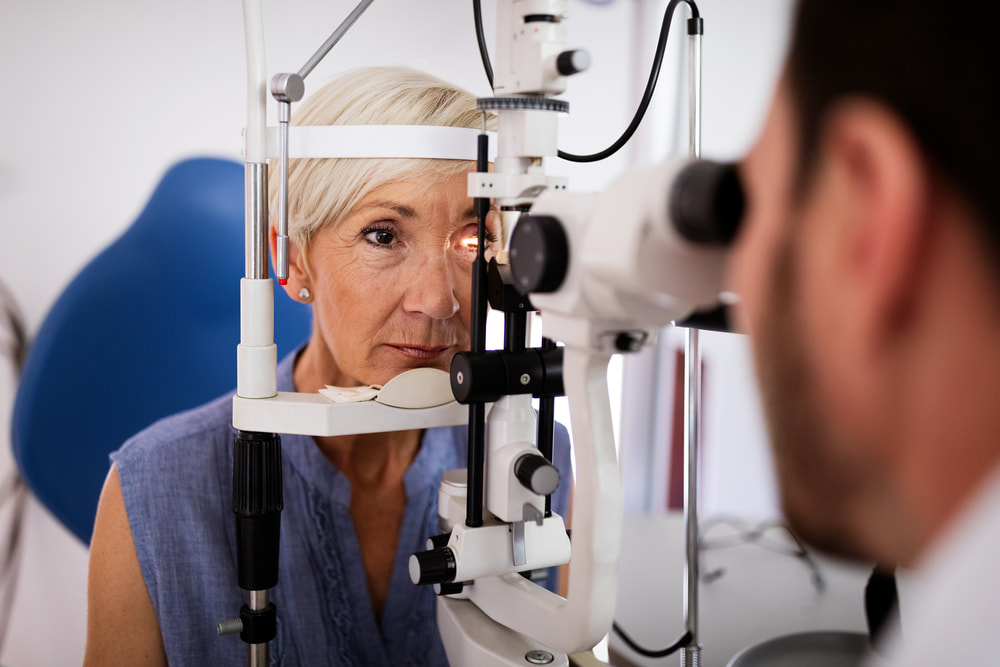Open-angle glaucoma happens gradually over time. In most cases, it develops because the normal fluid in the eye does not drain properly. This causes an increase in eye pressure, which may damage the optic nerve. Glaucoma generally happens gradually, and most people are unaware they have the condition at first. Although there is currently no cure, treatment may help slow the progression of the disease. This is why early detection and treatment can help. It is also helpful to know your risk factors. If you have an increased risk of developing glaucoma, you should have more frequent eye exams to monitor for changes. Although anyone can develop glaucoma, certain things increase your risk, including the following: Family history: People with a family history of glaucoma have an increased risk of developing the disease. Age: Glaucoma occurs more often in middle-aged or older adults. According to the American College of Ophthalmology, those over 40 are at an increased risk. Race: People of certain races also appear to have an increased risk. Individuals of Hispanic, African, and Asian descent have a greater chance of developing glaucoma than other races. Past eye injury: Significant trauma to the eye, such as a past eye injury, is also a risk factor. This may occur due to scarring that develops as the result of an injury. The scarring may block the normal flow of fluid from the eyes. Certain medical conditions: People with certain health conditions, such as diabetes and high blood pressure, may have an increased risk of eye conditions, including glaucoma. For example, according to the National Eye Institute, having diabetes doubles your risk of developing glaucoma. What should you do if you have risk factors for glaucoma?If you have any of the risk factors above, it is vital to make an appointment with an eye doctor for a comprehensive eye exam. An eye doctor can diagnose glaucoma even if you have no symptoms. You can also take steps to decrease the risk of certain medical conditions, such as diabetes and high blood pressure. Is there treatment for glaucoma?There is treatment for glaucoma. It will not restore the vision that is already lost, but it can slow the progression of the condition. Treatment for glaucoma may include a combination of the following:
We hope the information above helps you identify your risk factors for glaucoma. Remember, even if you have certain factors that are uncontrollable, there are still things you can do to reduce your risk of glaucoma. If you would like to ask whether an appointment with one of our eye doctors would be appropriate at this time, call our office at 508-746-8600. Comments are closed.
|
EYE HEALTH BLOGCategories
All
Archives
July 2024
|
|
Kadrmas Eye Care New England
55 Commerce Way, Plymouth, MA 02360
14 Tobey Road, Wareham, MA 02571 133 Falmouth Road (Rt 28), Mashpee, MA 02649 |
Phone Number:
1-508-746-8600 Hours: Monday through Friday — 8 AM – 4:30 PM |


 RSS Feed
RSS Feed
